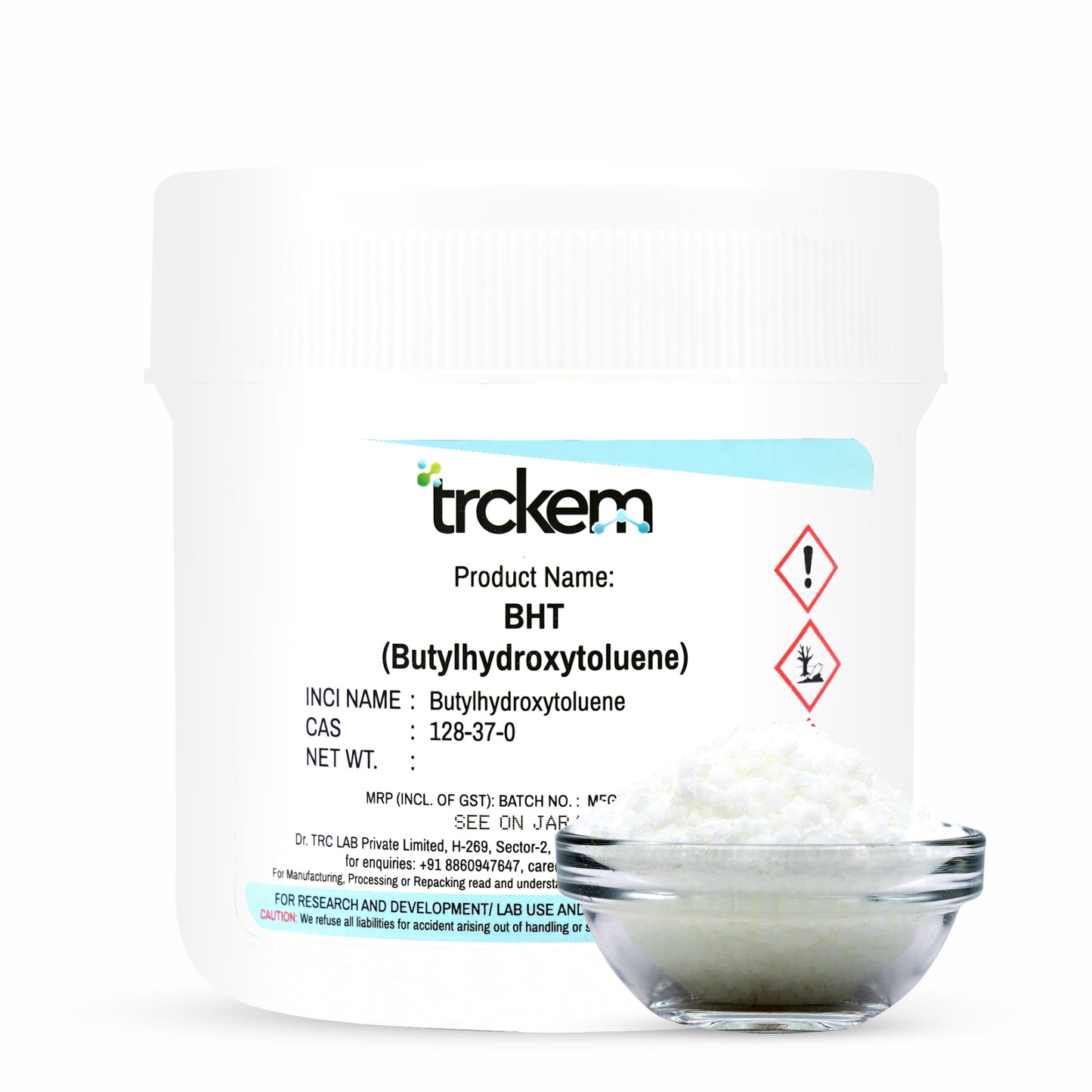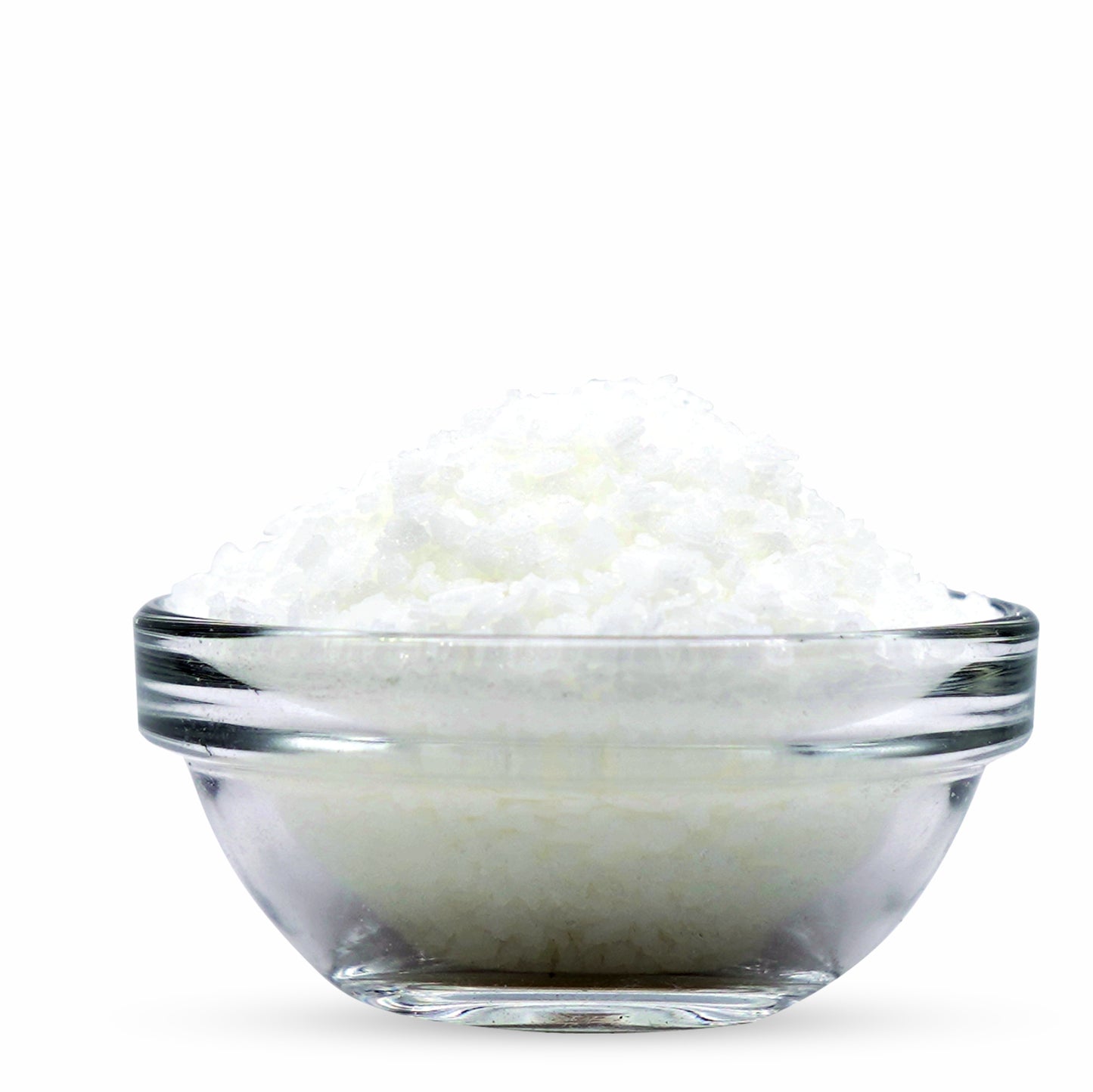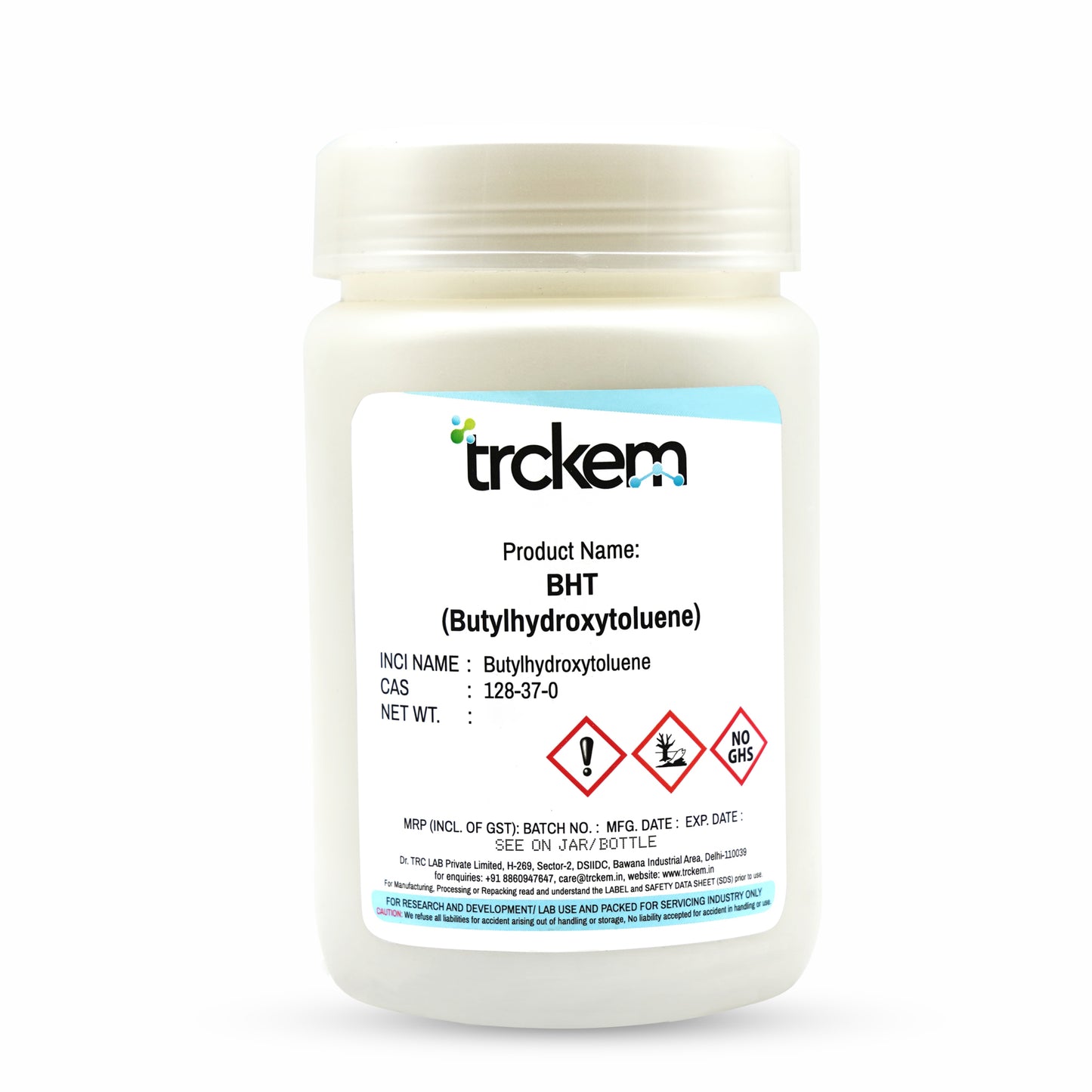




THE STORY OF BHT (BUTYLATED HYDROXYTOLUENE)

BHT: The Antioxidant Shield for Long-Lasting Formulations
BHT (Butylated Hydroxytoluene) is a widely used antioxidant that protects cosmetic, personal-care, and pharmaceutical formulations from oxidation. By preventing rancidity and color or fragrance degradation, BHT extends product shelf life and maintains formula stability over time.

Lab-Synthesized Phenolic Antioxidant for Global Use
BHT is produced by reacting p-cresol with isobutylene, followed by purification to create a high-purity, food- and cosmetic-grade antioxidant. TRCkem supplies low-odor, free-flowing BHT powder compliant with major global standards for skincare, haircare, fragrances, and oil-based systems.

Protect. Preserve. Stabilize.
BHT supports formula stability by:
✅ Preventing oxidation of oils, fats, esters, butters & pigments
✅ Maintaining color, fragrance, and texture over shelf life
✅ Enhancing stability of vitamin-rich & high-unsaturated formulations
✅ Protecting SPF, makeup, balm, and anhydrous systems from rancidity
Used in creams, lipsticks, sunscreens, hair serums, fragrances, bath oils, and OTC topical products.

Low-Dose, High-Efficiency Antioxidant — Use Within Limits
Typical usage level: 0.01–0.5% depending on product type.
Oil-soluble; add during heating phase or post-blend into oil portion.
Approved globally in cosmetics, food, and pharma — but subject to max-level regulations depending on category.
Not a preservative — works only as an antioxidant, not a microbial control agent.
Stable, non-volatile, long shelf life when stored in sealed, cool containers.
Formulator’s Queries, We Answered
1. What is BHT, and how is it used in personal care products?
BHT (Butylated Hydroxytoluene) is a synthetic antioxidant commonly used in personal care and cosmetic formulations to prevent the oxidation of oils and active ingredients. It helps extend the shelf life of products by protecting them from rancidity and degradation caused by exposure to air and light.
2. What are the benefits of using BHT in cosmetics and skincare?
Acts as a powerful antioxidant to stabilize formulations
Prevents oxidation of oils and fats, extending product longevity
Helps maintain the efficacy of active ingredients
Protects against environmental stressors when used in skincare
3. What types of personal care products contain BHT?
BHT is commonly found in:
Moisturizers and creams
Lipsticks and lip balms
Sunscreens
Anti-aging serums
Hair care products (such as conditioners and styling products)
Perfumes and deodorants
4. Is BHT safe for use in personal care products?
BHT is considered safe for use in cosmetics and skincare products at regulated concentrations. Global regulatory bodies such as the FDA (U.S.), EFSA (Europe), and CIR (Cosmetic Ingredient Review panel) have evaluated BHT and determined it is safe when used within specified limits.
5. What is the CAS Number and INCI Name of BHT?
CAS Number: 128-37-0
INCI Name: Butylated Hydroxytoluene
6. Can BHT be used in natural or organic cosmetics?
While BHT is synthetic, some formulations include it to stabilize natural oils. However, certified organic brands often prefer natural antioxidants like Vitamin E (Tocopherol) as an alternative.
7. Are there any side effects or concerns associated with BHT?
At approved concentrations, BHT is generally well tolerated. However, some individuals with sensitive skin may experience mild irritation. Regulatory agencies continue to monitor its safety, and ongoing studies assess its long-term effects.
8. How does BHT compare to other antioxidants like Vitamin E?
BHT is a synthetic antioxidant with strong stabilization properties, whereas Vitamin E (Tocopherol) is a natural antioxidant often used in "clean beauty" formulations. Both serve similar functions, but BHT is more effective at preventing oxidation in certain formulations.
9. Is BHT environmentally friendly?
BHT is not biodegradable and can accumulate in the environment. Some cosmetic brands are shifting to plant-based antioxidants as more sustainable alternatives.
10. Where can I purchase BHT for cosmetic formulation?
BHT is available through specialty chemical suppliers, cosmetic ingredient distributors, and online raw material marketplaces catering to the beauty and personal care industry.







